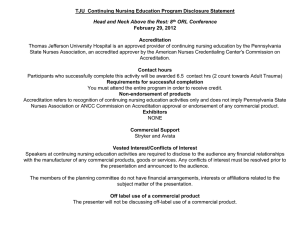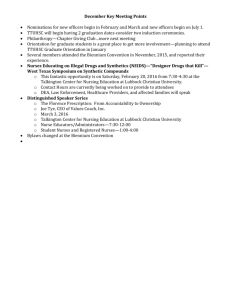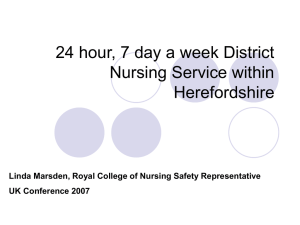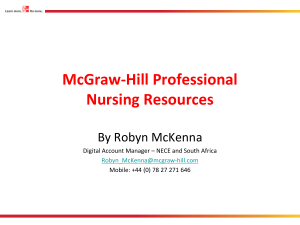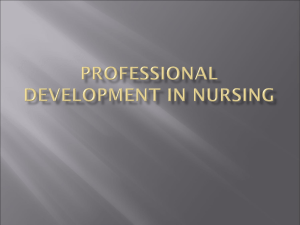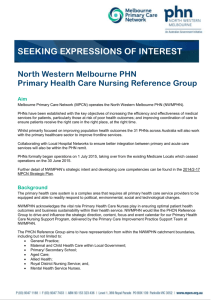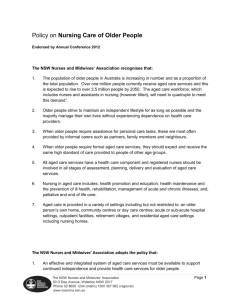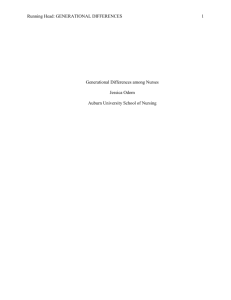RCN Principles of Feedback
advertisement
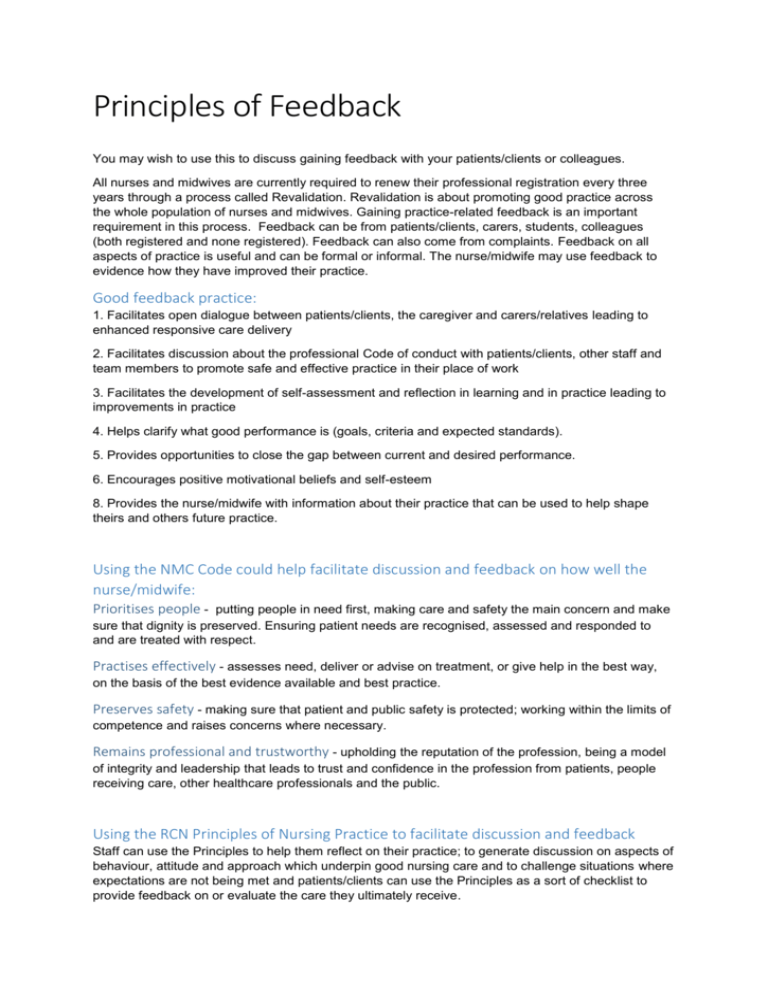
Principles of Feedback You may wish to use this to discuss gaining feedback with your patients/clients or colleagues. All nurses and midwives are currently required to renew their professional registration every three years through a process called Revalidation. Revalidation is about promoting good practice across the whole population of nurses and midwives. Gaining practice-related feedback is an important requirement in this process. Feedback can be from patients/clients, carers, students, colleagues (both registered and none registered). Feedback can also come from complaints. Feedback on all aspects of practice is useful and can be formal or informal. The nurse/midwife may use feedback to evidence how they have improved their practice. Good feedback practice: 1. Facilitates open dialogue between patients/clients, the caregiver and carers/relatives leading to enhanced responsive care delivery 2. Facilitates discussion about the professional Code of conduct with patients/clients, other staff and team members to promote safe and effective practice in their place of work 3. Facilitates the development of self-assessment and reflection in learning and in practice leading to improvements in practice 4. Helps clarify what good performance is (goals, criteria and expected standards). 5. Provides opportunities to close the gap between current and desired performance. 6. Encourages positive motivational beliefs and self-esteem 8. Provides the nurse/midwife with information about their practice that can be used to help shape theirs and others future practice. Using the NMC Code could help facilitate discussion and feedback on how well the nurse/midwife: Prioritises people - putting people in need first, making care and safety the main concern and make sure that dignity is preserved. Ensuring patient needs are recognised, assessed and responded to and are treated with respect. Practises effectively - assesses need, deliver or advise on treatment, or give help in the best way, on the basis of the best evidence available and best practice. Preserves safety - making sure that patient and public safety is protected; working within the limits of competence and raises concerns where necessary. Remains professional and trustworthy - upholding the reputation of the profession, being a model of integrity and leadership that leads to trust and confidence in the profession from patients, people receiving care, other healthcare professionals and the public. Using the RCN Principles of Nursing Practice to facilitate discussion and feedback Staff can use the Principles to help them reflect on their practice; to generate discussion on aspects of behaviour, attitude and approach which underpin good nursing care and to challenge situations where expectations are not being met and patients/clients can use the Principles as a sort of checklist to provide feedback on or evaluate the care they ultimately receive. Principle A - Nurses and nursing staff treat everyone in their care with dignity and humanity – they understand their individual needs, show compassion and sensitivity, and provide care in a way that respects all people equally. Principle B - Nurses and nursing staff take responsibility for the care they provide and answer for their own judgments and actions – they carry out these actions in a way that is agreed with their patients, and the families and carers of their patients, and in a way that meets the requirements of their professional bodies and the law. Principle C - Nurses and nursing staff manage risk, are vigilant about risk, and help to keep everyone safe in the places they receive health care. Principle D - Nurses and nursing staff provide and promote care that puts people at the centre, involves patients, service users, their families and their carers in decisions and helps them make informed choices about their treatment and care. Principle E - Nurses and nursing staff are at the heart of the communication process: they assess, record and report on treatment and care, handle information sensitively and confidentially, deal with complaints effectively, and are conscientious in reporting the things they are concerned about. Principle F - Nurses and nursing staff have up-to-date knowledge and skills, and use these with intelligence, insight and understanding in line with the needs of each individual in their care. Principle G - Nurses and nursing staff work closely with their own team and with other professionals, making sure patients’ care and treatment is co-ordinated, is of a high standard and has the best possible outcome. Principle H - Nurses and nursing staff lead by example, develop themselves and other staff, and influence the way care is given in a manner that is open and responds to individual needs.




